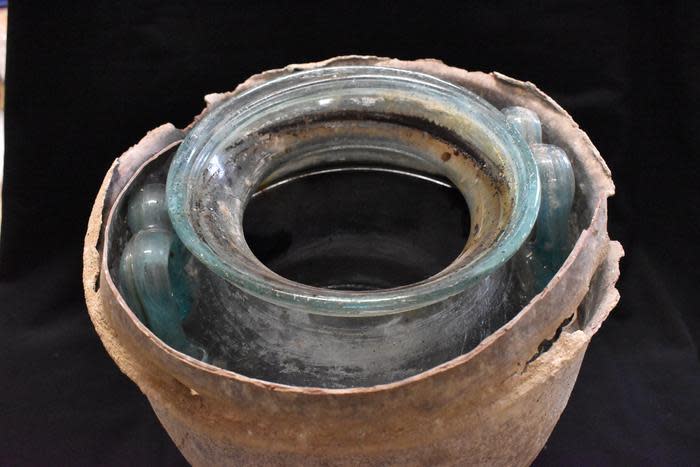Archeologists find "oldest wine ever discovered," report says
Archeologists have found an urn of wine that is more than 2,000 years old, making it the "oldest wine ever discovered," researchers said in a new study. The glass funerary urn was found in a Roman tomb in Carmona, Spain, that archeologists first uncovered in 2019.
A team of chemists at the University of Cordoba recently identified the wine as having been preserved since the first century, researchers said in a study published June 16 in the Journal of Archaeological Science: Reports. The discovery bested the previous record held by a Speyer wine bottle discovered in 1867 that dated back to the fourth century.
The urn was used in a funerary ritual that involved two men and two women. As part of the ritual, the skeletal remains of one of the men was immersed in the wine. While the liquid had acquired a reddish hue, a series of chemical tests determined that, due to the absence of a certain acid, the wine was, in fact, white.

"At first we were very surprised that liquid was preserved in one of the funerary urns," Juan Manuel Román, the city of Carmona's municipal archaeologist, said in a news release.
Despite millennia having passed, the tomb had been well-sealed and its conditions were therefore extraordinarily intact, protected from floods and leaks, which allowed the wine to maintain its natural state, researchers said.
"Most difficult to determine was the origin of the wine, as there are no samples from the same period with which to compare it," the news release said. Still, it was no coincidence that the man's remains were found in the wine. According to the study, women in ancient Rome were prohibited from drinking wine.
"It was a man's drink," the release said. "And the two glass urns in the Carmona tomb are elements illustrating Roman society's gender divisions in its funerary rituals."
How libraries are innovating to stay relevant
Questions swirl over Trump proposal to eliminate taxes from tip income
How dangerous are microplastics and how often do people ingest them?

